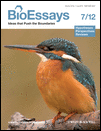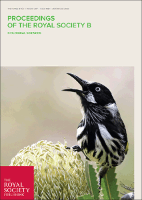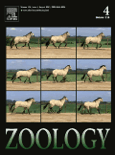
Biologia Futura
Scope & Guideline
Elevating Knowledge in Biochemistry and Beyond
Introduction
Aims and Scopes
- Plant Biology and Ecology:
The journal showcases research on plant physiology, ecology, and the impact of environmental factors on plant growth and development, including stress responses and interactions with other organisms. - Microbial and Environmental Biology:
Biologia Futura publishes studies on microbial diversity, bioremediation, and the interactions between microorganisms and their environments, focusing on both natural ecosystems and anthropogenic effects. - Conservation Biology:
The journal emphasizes conservation strategies, biodiversity assessments, and the ecological impacts of invasive species, with a strong focus on preserving genetic diversity and habitats. - Evolutionary and Developmental Biology:
Research on evolutionary processes, genetic diversity, and developmental mechanisms in various organisms is a core focus, contributing to our understanding of adaptation and speciation. - Health and Biomedical Research:
Biologia Futura includes studies on health-related topics, such as the effects of natural compounds on human health, the role of microbiomes, and advancements in medical research.
Trending and Emerging
- Astrobiology and Space Exploration:
Recent papers exploring plant adaptations for extraterrestrial habitats indicate a growing interest in astrobiology, highlighting the relevance of biological research in the context of space exploration. - Nanotechnology in Biological Applications:
The use of nanotechnology, particularly in enhancing plant immune responses and antioxidant systems, is trending, showcasing innovative approaches to improve agricultural practices. - Microbiome Research:
An increasing focus on microbiomes, both in environmental contexts and human health, underscores the importance of microbial interactions in various ecosystems and their implications for health. - Sustainability and Bioremediation:
Research addressing bioremediation techniques and sustainable agricultural practices is on the rise, reflecting global concerns about environmental sustainability and ecological restoration. - Interdisciplinary Approaches to Health:
Emerging studies that integrate biology with health sciences, exploring the effects of natural compounds on health and disease, are gaining prominence, indicating a shift towards holistic health research.
Declining or Waning
- Traditional Taxonomy:
Research that solely focuses on taxonomic classification without addressing ecological or evolutionary implications is becoming less prevalent, as the field moves towards integrative approaches that combine taxonomy with molecular and ecological data. - Purely Descriptive Studies:
There is a noticeable decrease in the publication of studies that are purely descriptive in nature, with an increasing emphasis on hypothesis-driven research that explores underlying mechanisms and applications. - Single-Species Studies:
Research focused exclusively on single species without considering broader ecological contexts or interactions is declining, as interdisciplinary and ecosystem-level studies gain importance.
Similar Journals

Advancements in Life Sciences
Empowering Scholars to Shape the Future of Life SciencesAdvancements in Life Sciences is a prominent open-access journal published by The Running Line since 2014, dedicated to the exploration and dissemination of research in the fields of biochemistry, genetics, molecular biology, and veterinary sciences. Based in Lahore, Pakistan, this journal serves as an important platform for researchers, professionals, and students alike, offering a wide array of articles that contribute to the advancement of knowledge in these critical areas of life sciences. With an increasing visibility reflected in its Scopus rankings—#294 in General Medicine, #106 in General Veterinary, and #159 in General Biochemistry—the journal is positioned to foster innovative research and discussions. The journal operates under an open-access model, ensuring that its valuable content is readily available to the global academic community. As it continues to evolve, Advancements in Life Sciences aspires to build a substantial impact within its respective quartiles, currently recognized as Q4 in Biochemistry, Genetics, and Molecular Biology, and Q3 in Veterinary, encouraging researchers to contribute their findings and advance the frontiers of life sciences.

BIOESSAYS
Illuminating the Path of Biological ResearchBIOESSAYS, published by WILEY, is a leading academic journal dedicated to the dynamic fields of biochemistry, genetics, and molecular biology. With an impressive impact factor and recognized as a Q1 journal in its category for 2023, it ranks 49 out of 221 in the Scopus database, placing it within the 78th percentile among its peers. Since its inception in 1984, BIOESSAYS has served as a vital platform for researchers, professionals, and students, facilitating the dissemination of pivotal findings, innovative theories, and review articles that shape the current understanding of biological sciences. Although it does not offer open access, the journal remains key for those seeking to stay at the forefront of scientific discovery and discussion within this ever-evolving discipline. With its commitment to high-quality, peer-reviewed content, BIOESSAYS continues to influence future research directions and academic discourse.

Open Life Sciences
Unlocking Knowledge for a Healthier TomorrowOpen Life Sciences is a distinguished open-access journal published by DE GRUYTER POLAND SP Z O O, dedicated to advancing research across diverse disciplines in the life sciences. Since its inception in 2014 and transitioning to open access in 2015, the journal has become a pivotal platform for researchers, fostering the dissemination of high-quality scientific work while ensuring that valuable findings are freely accessible to the global community. With an impressive categorization into Q2 in Agricultural and Biological Sciences and Q3 in several other fields including Biochemistry and Immunology as of 2023, Open Life Sciences promotes innovation and knowledge sharing across its broad spectrum of topics. The journal's commitment to excellence is reflected in its competitive Scopus rankings, making it an essential resource for professionals and students alike who are keen to stay at the forefront of life sciences research.

PROCEEDINGS OF THE ROYAL SOCIETY B-BIOLOGICAL SCIENCES
Exploring the Frontiers of Life SciencesPROCEEDINGS OF THE ROYAL SOCIETY B-BIOLOGICAL SCIENCES, published by the esteemed Royal Society, stands as a premier platform for disseminating cutting-edge research in the fields of Biological Sciences. With an impressive impact factor reflective of its high citation rates and scholarly contributions, this journal encompasses a wide array of disciplines, including Agricultural and Biological Sciences, Biochemistry, Genetics and Molecular Biology, Environmental Science, and Immunology and Microbiology, consistently ranking in the Q1 category across these fields. Since its inception in 1946, it has been committed to advancing our understanding of biological systems and informing evidence-based practices. Researchers and academics can submit their work without the Open Access barrier, thereby maintaining the integrity of the disciplinary discourse while providing comprehensive insights. The journal's location in the United Kingdom also positions it at the heart of global scientific innovation, making it a vital resource for professionals and students alike who are eager to explore the latest trends and breakthroughs in the biological sciences.

All Life
Connecting Ideas, Cultivating UnderstandingAll Life is a distinguished academic journal published by TAYLOR & FRANCIS LTD, based in the United Kingdom, focusing on the interdisciplinary realms of agricultural and biological sciences, biochemistry, genetics, and neuroscience. With the ISSN 2689-5293 and E-ISSN 2689-5307, this open-access journal aims to disseminate high-quality research from 2020 to 2024, facilitating a wider reach and impact across various fields. Notably, it holds a Q3 ranking in both Agricultural and Biological Sciences, as well as Biochemistry, Genetics and Molecular Biology, and a Q4 ranking in Neuroscience, reflecting its growing presence in these disciplines. All Life aims to foster collaboration among researchers, professionals, and students, encouraging innovative approaches in understanding life sciences. By delivering timely insights and thought-provoking discussions, the journal plays a crucial role in advancing knowledge and promoting interdisciplinary dialogue in the evolving landscape of life sciences research.

Journal of Biological Research-Thessaloniki
Advancing Biological Frontiers from Thessaloniki.Journal of Biological Research-Thessaloniki, published by Aristotle University of Thessaloniki, is a distinguished academic journal committed to advancing the fields of Agricultural and Biological Sciences and Biochemistry, Genetics and Molecular Biology. As an Open Access journal since 2004, it provides a platform for the rapid dissemination of innovative research that spans diverse biological disciplines. With an impact factor that situates it in the Q2 category for Agricultural and Biological Sciences and Q3 for Biochemistry, Genetics and Molecular Biology as of 2023, the journal demonstrates a significant contribution to its respective fields. Located in Thessaloniki, Greece, it serves a global audience of researchers, professionals, and students eager to access quality scientific content. The journal is dedicated to publishing original research articles, reviews, and critical commentaries, encouraging collaboration and dialogue amongst scientists dedicated to the frontiers of biological research.

ZOOLOGY
Fostering global collaboration in zoological sciences.ZOOLOGY, an esteemed journal published by Elsevier GmbH, stands at the forefront of research in the Animal Science and Zoology fields. With a notable impact factor and recognized as a Q1 category journal in its discipline, ZOOLOGY is highly regarded among researchers, ranking #98 out of 490 in Scopus rankings. Founded in 1994 and continuing through to 2024, the journal aims to publish cutting-edge, peer-reviewed articles that contribute significantly to the understanding of zoological sciences. Based in Munich, Germany, ZOOLOGY provides both subscription and open access options, ensuring that influential research reaches a wider audience. It serves as an essential platform for disseminating innovative findings, connecting scholars globally, and fostering interdisciplinary collaboration to advance zoological knowledge.

Tropical Life Sciences Research
Empowering Knowledge in Tropical Ecosystems and MedicineTropical Life Sciences Research, published by PENERBIT UNIVERSITI SAINS MALAYSIA, is an esteemed open-access journal dedicated to the realms of Agricultural and Biological Sciences, Biochemistry, Genetics, and Molecular Biology, and Medicine. Since its inception in 2006, this journal has established itself as a significant platform for disseminating high-quality research findings that contribute to the understanding of tropical biodiversity and health-related issues. With its innovative approach, Tropical Life Sciences Research has garnered an impressive impact factor, reflecting its influence in the academic community; it is ranked Q2 in Agricultural and Biological Sciences and Q3 in both Biochemistry and Medicine categories as of 2023. Researchers and professionals can access a wealth of knowledge through this journal, whose content spans from 2009 to 2024, making it a vital resource for students and experts alike interested in advancing the science of tropical ecosystems and health. The journal also stands out for its comprehensive Scopus rankings, indicating its relevance and quality in the competitive academic landscape.

BANGLADESH JOURNAL OF BOTANY
Bridging Science and Conservation in Plant StudiesBANGLADESH JOURNAL OF BOTANY is a prominent publication in the field of plant sciences, dedicated to advancing research and knowledge within the botanical community. Published by the BANGLADESH BOTANICAL SOC, this journal serves as a vital platform for researchers and scholars seeking to disseminate their findings related to plant biology, ecology, and conservation practices, particularly within the unique context of Bangladesh's diverse flora. With an ISSN of 0253-5416 and an E-ISSN of 2079-9926, the journal encompasses a wide scope of topics, reflecting interdisciplinary approaches in botanical research. Since its inception, with convergence periods from 1996 to 2001 and from 2003 to 2024, it has garnered recognition, positioned in the Q4 category in the Plant Science field with a ranking of #459/516 in Scopus, indicating its contribution to the field despite its developing impact. Operating within Bangladesh, at the UNIV DACCA DEPT BOTANY, the journal provides a crucial insight into the ecological and agricultural implications of plant studies in the region, catering to the needs of academics, professionals, and students eager to engage with contemporary botanical research.

JOURNAL OF BIOSCIENCES
Advancing the Frontiers of Biosciences ResearchJOURNAL OF BIOSCIENCES, published by the Indian Academy of Sciences, has established itself as a pioneering platform in the fields of biosciences, encompassing diverse research areas such as agricultural and biological sciences, biochemistry, genetics, molecular biology, and medicine. With an impressive trajectory since its inception in 1979, the journal has achieved notable recognition, securing a Q1 ranking in Agricultural and Biological Sciences and maintaining its place in the top quartiles for Biochemistry and Medicine as of 2023. With Scopus rankings placing it at #32 in General Agricultural and Biological Sciences and #65 in General Biochemistry, Genetics, and Molecular Biology, the journal reaches the 85th and 70th percentiles respectively, reflecting its impact and relevance in current scientific discourse. Although it does not offer open access, the JOURNAL OF BIOSCIENCES remains crucial for researchers, professionals, and students dedicated to advancing knowledge and innovation within the biosciences, providing a vibrant forum for high-quality research and comprehensive reviews.